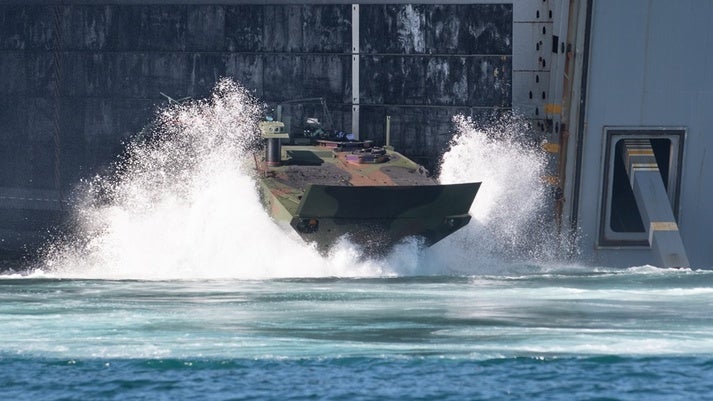
The US Marine Corps (USMC) has issued an order to suspend waterborne amphibious combat vehicle (ACV) operations due to a towing mechanism problem.
The service said that the decision had been made ‘out of an abundance of caution’. It will not affect the land mobility of the vehicle.
USMC headquarters spokesman major Jim Stenger said in a statement: “The Marine Corps is working on identifying and fixing the root cause of the problem.
“Realistic training is a vital component of readiness, and the Marine Corps is committed to ensuring Marines train under the safest conditions possible; this includes ensuring the functionality of vehicles and equipment.”
The new tracked, fully amphibious ACV is intended to replace the 40-year-old amphibious assault vehicle (AAV).
Developed by BAE Systems with teammate IVECO Defence Vehicles, ACV is a mobile, survivable and adaptable platform.
It can carry out ship-to-shore operations, bringing improved combat power to the battlefield.
BAE Systems is delivering the ACVs to the USMC under a 2020 full-rate production contract worth nearly $184m awarded in December last year.
The service currently has 54 vehicles in its inventory.
In February last year, BAE Systems secured a contract worth $113.5m to supply an additional 26 ACVs to the USMC.
The service received the first ACV-C variant from the company for testing in February.



